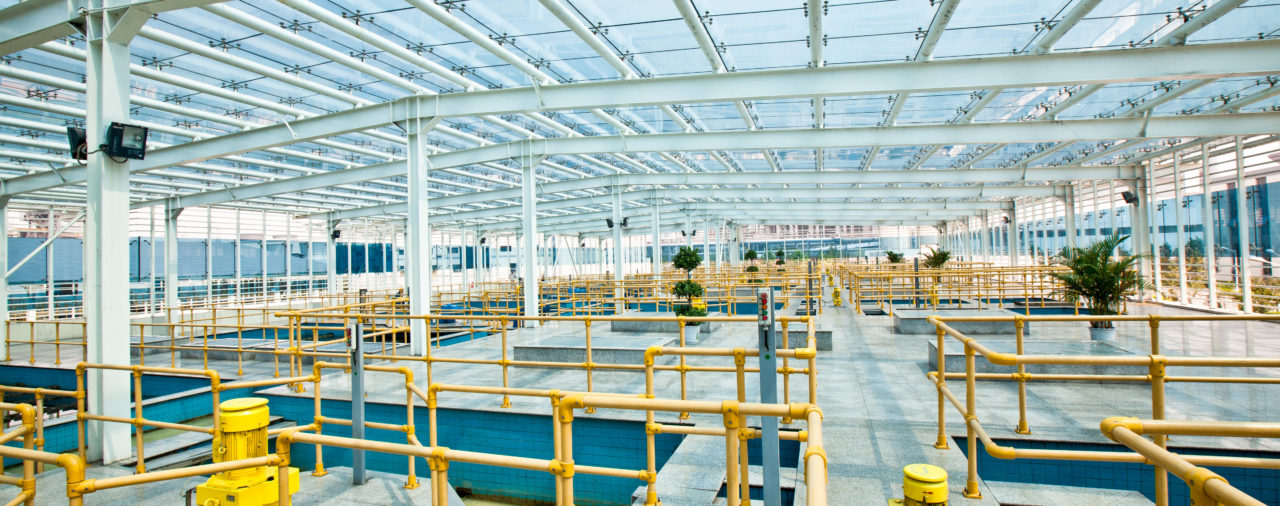Overcoming institutional and organisational barriers to sanitation:
WHAT’S NEW?
Sanitation remains a great challenge of our time, especially in fast-growing cities of Africa and Asia. According to the UN, “in 2015, 29 per cent of the global population lacked safely managed drinking water supplies, and 61 per cent were without safely managed sanitation services. » A lack of sanitation dramatically impairs public health, the environment, and development. Sanitation includes a chain of activities from private hygiene practices, to collection, treatment and disposal of wastes, either through a grid or non-grid system. The UNs have for the first time set a specific target on sanitation with the 6th sustainable development goal. According to goal 6.2, all countries should “by 2030, achieve access to adequate and equitable sanitation and hygiene for all and end open defecation, paying special attention to the needs of women and girls and those in vulnerable situations ». Sanitation is a particularly complex topic, since it involves a large number of actors, a diversity of technologies, expands in public and private spaces, and relies on individual / collective behaviours based on an intimate practice that is taboo and little flexible.
The 3rd scientific workshop held in 2016 organised by the AgroParisTech – SUEZ Chair concluded that barriers to sanitation are first of all institutional and organisational. This new concern regarding sanitation is shared by a number of actors involved, from either the research or operational realm. Institutions relate to both rules (legal rules, rights, norms, standards but also with a sociological stance, representations, customs, traditions, beliefs) and entities involved in the sector from macro (rules designers), meso (rules translators and regulation) and micro (operational) levels. Organisation relates to ways of providing the service.
The 4th scientific workshop will bring into light recent research and operational initiatives that may help to overcome these institutional and organisational barriers. How to build sanitation as a general interest service? How to overcome coordination issues due to multiplicity of technologies? How do researchers analyse institutional change? How do actors deal with institutional rules constraints? The event will provide another opportunity to develop links between managers, researchers and students engaged with sanitation issues.
PROGRAM FOR THE 2 DAYS
D1 program – 6th of May 2021
08:45 – 09:00 OPENING – CONNECTIONS
09:00 – 09:10 WELCOME ADDRESS
Prof. Gilles TRYSTRAM, General Director of AgroParisTech, France (Fr)
09:10 – 09:15 INTRODUCTION by the head of the Scientific Committee Thierry RIEU, UMR G-EAU, France, Fr
09:15 – 09:45 INAUGURAL ADDRESS
Prof. Bernhard TRUFFER, EAWAG, Switzerland (Eng)
09:45 – 09:55 Discussion by Prof. Claude MENARD, Sorbonne Centre for Economics, France (Eng)
09:55-10:05 BREAK
10:05 – 11:10 SESSION 1: An institutional perspective on sanitation
This session intends to analyse institutional and organisational barriers to sanitation. Two aspects will be particularly tackled: the issue of building a general interest service of sanitation, and the issue of coordinating sanitation service which is based on a diversity of technologies and modes of provision.
Movie on urban sanitation challenges by AgroParisTech (Fr)
10:10-10:25 Building sanitation as a public interest service: reflexion based on European experience – Dr Pierre BAUBY, Fondation Jean Jaurès, France (Fr)
10:25-10:40 Complementarity between various forms of sanitation: a case study from Dakar – Christophe LE JALLÉ, PS-EAU, France (Fr)
10:40-11:10 Discussion
11:10 – 11:20 BREAK
11:20-11:35 Historical perspective from Hanoi, Vietnam – Dr Eng. Sophie SCHRAMM, Technische Universität Dortmund, Germany (Eng)
11:35-11:50 Institutional evolution or transformation? Legitimizing the non- sewered sanitary city in South Asia – Dr Shubhagato DASGUPTA, CPI, India (Eng)
11:50-12:20 Discussion
12:20 – 12:35 D1 CLOSING SPEECH by Dr Dennis MWANZA, RTI (Eng)
12:35 CLOSURE
D2 Program – 7th of May
8:45-9:00 OPENING – CONNECTIONS
09:00 – 10:05 SESSION 2: Institutional change: how to analyse it? How to make it happen?
This session is devoted to discussing innovative research works on institutional change, and operational initiatives to overcome institutional barriers.
Movie on sanitation operators by AgroParisTech (Fr)
9:05-9:20 Overcoming institutional barriers, Key lessons – Dr Christian BINZ and Dr Miriam HACKER, EAWAG, Switzerland (Eng)
9:20-9:35 Institutional change for the urban poor, how can research help? – Dr Guy NORMAN, WSUP and Urban Research Ltd, England (Eng)
9:35-10:05 Discussion
10:05 – 10:15 BREAK
10:15-10:30 Can an NGO help moving institutional barriers? From working with a group of small private operators to building a social franchise by GRET- Mrs Marion SANTI – GRET, France and Ms Milena PONCIN – Confluence, Laos (Fr)
10:30-10:45 An innovative approach: the example of the European joint co financing to ONEE (Morocco) in order to implement the national sanitation programme – Mr Adil HASNAOUI, ONEE, Morocco and Dr Olivier CRESPI REGHIZZI, AFD, France (Fr)
10:45-11:15 Discussion
11:15 – 11:25 BREAK
11:25 – 11:55 Feedback from Prof. Laurent Bibard, ESSEC, France (Fr)
CONCLUSION
11:55 – 12:10 Research, innovation and partnerships to ensure access to clean water and sanitation for all – Dr Xavier LITRICO, SUEZ, France (Fr)
12:10 – 12:25 CLOSING SPEECH by Dr Gilles KLEITZ, Agence Française de Développement, France (Fr)
In addition – 6th of May
A SESSION BY YOUNG SCHOLARS AND PREVIOUS TRAINEES BY THE INTERNATIONAL EXECUTIVE MASTER WATER FOR ALL – AGROPARISTECCH
13:30 – 13:45 OPENING – CONNECTIONS
13:45 – 13:50 WELCOME ADDRESS
Dr Sarah Botton, AFD, France (Fr)
13:50 – 14:05 Comparative analysis of wastewater reuse policies in Morocco andTunisia Amal Ennabih, Sciences Po Lyon, CEREG, UMR G-EAU, France (Fr)
14:05 – 14:25 Discussion
14:25-14:40 Institutional change in the field of sanitation through social sciences Dr Héloïse Valette, Université Jean Jaurès, Toulouse, France (Fr)
Dr Marine Colon, AgroParisTech, UMR G-EAU – Montpellier Recherche en Management, France
14:40 – 15:00 Discussion
15:00-15:10 BREAK
15:10 – 17:10 How to improve sanitation? A presentation of transformation projects by trainees of the IEM Water for all at AgroParisTech funded by the Chaire
Two parallel sessions: in French (Fr) and in English (Eng) :
15:10 -15:20 Blaise FAYE, Sénégal (Fr) / Mahmoud MEHANY, Egypte (Eng)
15:20 – 15:40 Dominique OGA, Côte d’Ivoire (Fr) / Dany DOURNG, Cambodge (Eng) 15:40 – 16:00 François NAHIMANA, Burundi (Fr) / Maksud ABBASKHANOV, Uzbekistan (Eng)
16:00-16:20 Mohamed Mansour DIA, Mauritanie (Fr) / Zohaib BUTT, Pakistan (Eng)
16:20 -16:40 Polpitiya ANURADHA, Sri Lanka (Eng) 16:40-17:00 ULYANI, Indonesia (Eng)
17:00 – 17:15 CONCLUSION
Scientific committee:
Pierre BAUBY (Fondation Jean Jaurès), Dr Sarah BOTTON (AFD), Dr Marine COLON (AgroParisTech / UMR G-EAU / MRM), Jean-Antoine FABY (AgroParisTech), Dr Lætitia GUERIN (Inrae/UMR G-EAU / MRM), Dr Xavier LITRICO (SUEZ), Dr Pierre-Louis MAYAUX (CIRAD/UMR G-EAU), Prof Claude MENARD (Centre d’Economie de la Sorbonne), Thierry RIEU (AgroParisTech / UMR G-EAU), Dr Héloïse VALETTE (Université Jean Jaurès, Toulouse), Dr Marie-Hélène ZERAH (IRD)
Organising commitee:
Francine AUDOUY (AgroParisTech / UMR G-EAU), Dr Sarah BOTTON (AFD), Sandra CESCHIN (AgroParisTech), Dr Marine COLON (AgroParisTech / UMR G-EAU / MRM), Maria MANGANA (AgroParisTech), Sylvie ORY (AFD).
Movies made by AgroParisTech with the support trainees at the IEM OPT and Gérôme Fitoussi.






